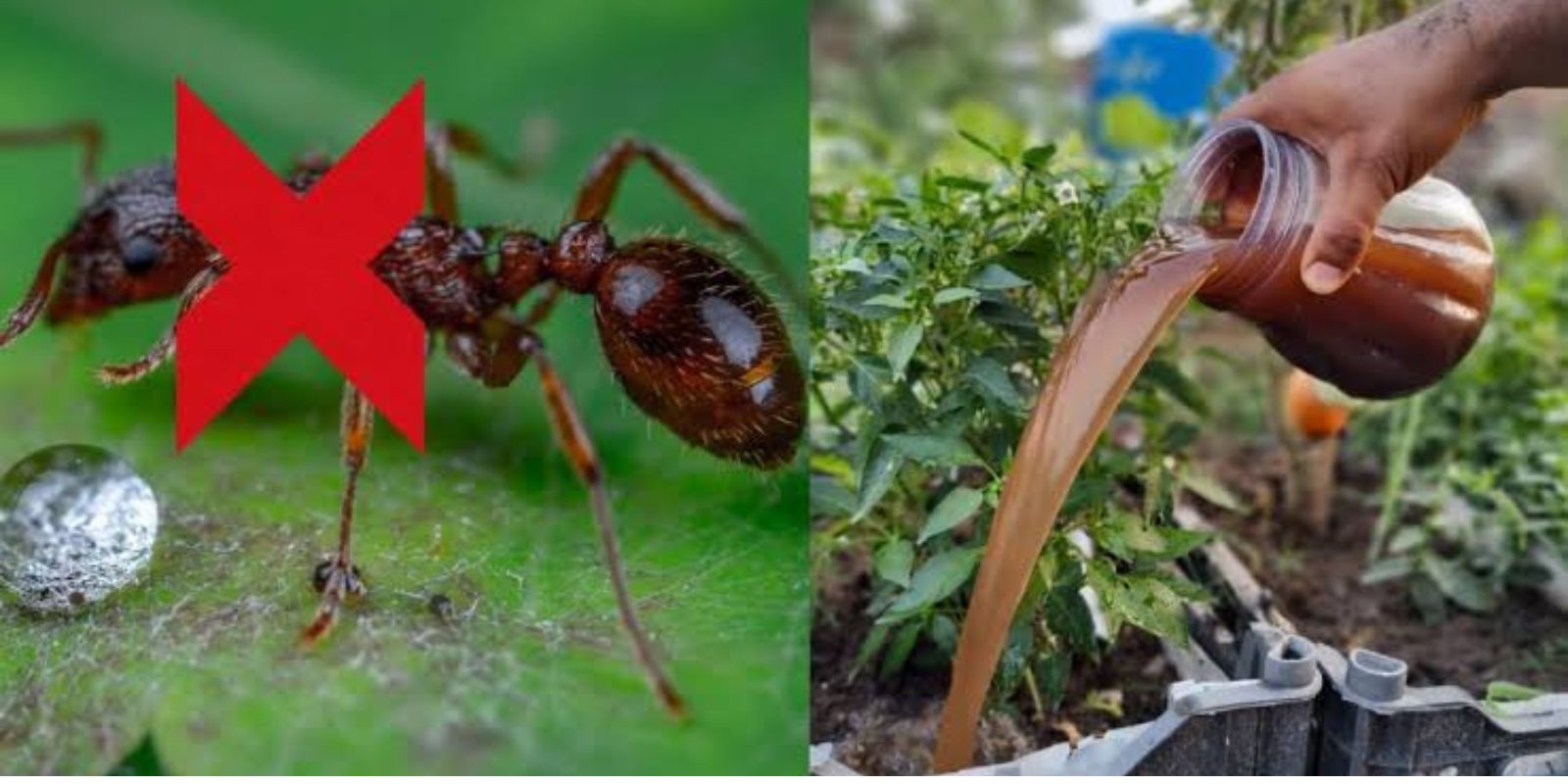Ants can be both a nuisance and a challenge for gardeners. While they may play a role in the ecosystem, their presence in your garden can disrupt plant growth, attract pests like aphids, and create unsightly anthills. Many people resort to chemical pesticides, but these can harm beneficial insects, your plants, and the environment. Thankfully, there’s a natural and effective remedy that can rid your garden of ants in as little as 10 seconds!
This simple yet powerful solution involves using cornflour along with other natural repellents to eliminate ants and prevent their return. Let’s dive into the steps and explore additional tips for keeping your garden pest-free.
Why Ants Are a Problem in Your Garden
Ants are often attracted to gardens due to the presence of food, moisture, and shelter. They farm aphids and scale insects for the sweet honeydew they produce, which can lead to an increase in these pests. Additionally, ant colonies can destabilize soil around plant roots, negatively impacting plant health.
While it’s important to respect the role ants play in the environment, managing their population in your garden is key to maintaining a healthy ecosystem.
How Cornflour Works as an Ant Repellent
Cornflour (maize meal) is a non-toxic and inexpensive solution for managing ant infestations. When ants consume cornflour and take it back to their colony, it disrupts their digestive system. This makes it an effective, safe, and environmentally friendly alternative to chemical pesticides.
Steps to Get Rid of Garden Ants
1. Spread Cornflour Around Plants and Anthills
Locate areas where ants are active, such as around plants, pathways, or anthills. Sprinkle a generous amount of cornflour in these areas. The ants will collect the cornflour and carry it back to their colony as food.
2. Wait for the Magic to Happen
In just a few hours, you’ll notice a significant reduction in ant activity. The cornflour disrupts the ants’ digestive systems, causing the colony to decline rapidly.
3. Plant Natural Ant Repellents
To prevent ants from returning, incorporate plants that naturally repel them. Mint and lavender are excellent choices, as their strong scents act as a natural deterrent. Plant these herbs around the perimeter of your garden or near areas where ants are commonly found.
4. Combat Other Pests with Natural Remedies
If your garden is also dealing with fleas or other pests, use additional natural remedies:
- Yeast: Sprinkle around problem areas to deter pests.
- Cinnamon or Turmeric: Both spices are effective at repelling ants and other insects.
- Baking Soda: Mix with sugar to target ants specifically.
5. Ensure Long-Term Prevention
Keep an eye on potential ant activity and repeat the process if necessary. Regularly planting repellent herbs and maintaining your garden’s health will reduce the chances of future infestations.
Why Choose Cornflour Over Chemical Pesticides?
- Eco-Friendly: Cornflour is biodegradable and safe for the environment, unlike many pesticides that can harm soil and water.
- Non-Toxic: It’s safe to use around pets, children, and beneficial garden insects like bees and ladybugs.
- Affordable and Accessible: Cornflour is inexpensive and easy to find in most grocery stores.
- Effective and Fast-Acting: Results are visible within hours, making it a quick solution to your ant problem.
Additional Tips for Managing Garden Ants Naturally
While cornflour is highly effective, combining it with other natural methods can provide comprehensive pest control.
1. Diatomaceous Earth
This natural powder is made from fossilized algae. Sprinkle it around plants and ant trails—it dehydrates and kills ants without harming the environment.
2. White Vinegar Solution
Mix equal parts white vinegar and water in a spray bottle. Spray it directly onto ant trails or anthills to disrupt their scent trails and deter them from returning.
3. Boiling Water
For anthills that are far from plants, pouring boiling water directly into the colony can be an effective way to eliminate them. Be cautious not to harm nearby plants or beneficial insects.
4. Essential Oils
Peppermint, tea tree, and citrus oils are powerful ant repellents. Mix a few drops with water and spray the solution around affected areas.
Common Mistakes to Avoid
While dealing with ants, it’s important to keep a few things in mind:
- Overusing Chemicals: Avoid using harsh pesticides that can harm your garden’s ecosystem.
- Ignoring the Source: Always locate the colony and target it directly to prevent re-infestation.
- Disrupting Beneficial Insects: Be cautious with natural remedies like diatomaceous earth, as they can harm other insects if overused.
Conclusion: An Ant-Free Garden the Natural Way
Eliminating ants from your garden doesn’t have to involve toxic chemicals or expensive solutions. With a simple remedy like cornflour, combined with preventive measures such as planting repellent herbs and using additional natural methods, you can maintain a healthy, thriving garden free from pests.
💬 Have you tried this trick before? Share your experiences and let us know your favorite natural gardening hacks in the comments! Together, let’s grow healthier gardens, one step at a time.

